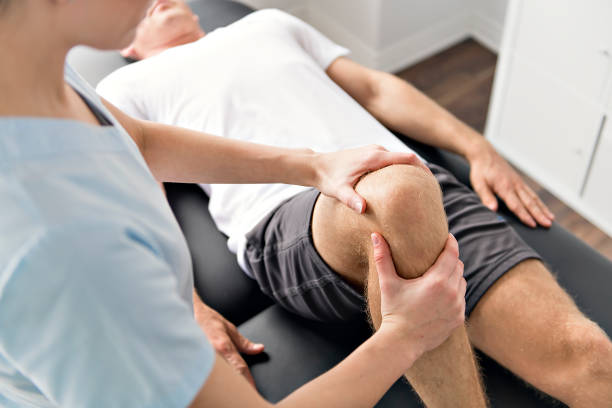Recovery Peptides I Injury and Tissue Repair Research
Did you know that peptides, those tiny chains of amino acids, have been linked to stimulating the release of growth hormone, aiding in muscle growth, and repairing damaged tissues after intense workouts or injuries? These remarkable molecules are emerging as a powerful tool for enhancing post-workout regeneration, accelerating the body’s natural healing processes, and promoting faster recovery.
Whether you’re an athlete, a fitness enthusiast, or someone recovering from an injury or surgery, understanding the benefits of recovery peptides can be a game-changer in your journey towards optimal health and performance. From boosting growth hormone production to promoting tissue repair and reducing inflammation, these short chains of amino acids play a vital role in various physiological functions, including the formation of new blood vessels and connective tissue repair.
✓ Fast delivery
✓ Premium Quality
✓ 3rd party tested
Introduction to recovery peptides
Peptides are short chains of amino acids, the building blocks of proteins. Your body naturally produces peptides to perform a variety of essential tasks, including hormone production and tissue repair. When it comes to recovery peptides, they can facilitate the process by stimulating various physiological mechanisms, including the formation of new muscle and blood vessels.
How do peptides aid in recovery and repair?
- Peptides can boost the production of growth hormones, which are essential for tissue repair and muscle growth.
- They can enhance the body’s natural healing processes, accelerating the repair of damaged tissues, tendons, and muscles.
- Peptides possess anti-inflammatory properties, helping to reduce swelling and pain associated with injuries, thereby providing pain relief.
- By supporting the body’s recovery mechanisms, peptides can help athletes and active individuals return to their peak performance levels faster after an injury or intense physical activity.
- Peptides can interact with various cellular processes to promote faster wound healing and injury repair.
Overall, peptides are versatile compounds that can significantly accelerate recovery time, support overall health, and enhance physical performance. Their ability to stimulate various physiological processes makes them a valuable tool in the realm of sports medicine and injury rehabilitation. As research progresses, sports medicine will soon have access to an even wider array of key peptides for optimizing recovery and enhancing physical performance.

Benefits of using recovery peptides
The benefits of incorporating recovery peptides into your regimen are multifaceted:
- Faster muscle repair and growth: Peptides play a crucial role in accelerating the muscle recovery process. By stimulating protein synthesis and mitigating inflammation, they create an optimal environment for rapid muscle regeneration and growth. This can be especially beneficial for athletes and fitness enthusiasts who push their bodies to the limit, allowing them to recover more efficiently and return to training sooner. Many peptides have demonstrated potential in enhancing muscle growth and performance, making them popular among bodybuilders and athletes.
- Improved wound healing and injury repair: The remarkable properties of recovery peptides extend beyond muscle repair. These versatile compounds have also been shown to enhance wound healing by promoting cellular proliferation and migration. This makes them invaluable in post-surgical scenarios, where rapid tissue regeneration is crucial for a successful recovery. Some of the best peptides for healing, like BPC-157, have demonstrated the ability to accelerate wound healing and support the formation of new blood vessels, which is essential for tissue repair.
- Pain relief and inflammation reduction: Many peptides present a promising avenue for pain relief and inflammation reduction. By interacting with various cellular processes, peptides can help reduce inflammation associated with injuries and intense physical activity. This can lead to faster recovery times and improved overall comfort during the healing process.
Popular recovery peptides
Peptides have emerged as a promising avenue for enhancing post-workout recovery and accelerating the healing process. Among the various recovery peptides available in our peptides shop, several have garnered attention for their unique capabilities in supporting muscle repair, wound healing, and overall regeneration.
- BPC-157 – a body-protecting compound, is renowned for its healing and regenerative properties. This peptide has demonstrated the ability to accelerate the repair of wounds, muscles, and tendons, making it a popular choice among athletes and fitness enthusiasts.
- CJC-1295 – a growth hormone-releasing hormone (GHRH) analogue that can help boost the body’s natural production of human growth hormone (HGH). This can aid in recovery and muscle growth, making it a favourable option for those seeking to enhance their athletic performance and physique.
- GHK-CU – a naturally occurring copper peptide, has shown promise in various recovery and healing processes. This peptide may play a role in wound healing, tissue repair, and inflammation reduction, making it a valuable addition to any recovery regimen.
- Ipamorelin – Ipamorelin is another peptide that can stimulate the release of HGH, similar to CJC-1295. By increasing HGH levels, Ipamorelin may aid in muscle recovery, injury healing, and overall body composition improvement.
- TB-500 – Also known as Thymosin Beta-4, TB-500 peptide is a peptide that has demonstrated its potential in wound healing, tissue repair, and inflammation reduction. This makes it a valuable tool for athletes and fitness enthusiasts seeking to optimize their recovery and performance.
- Thymosin B-4 – Thymosin B-4, a naturally occurring peptide, plays a crucial role in wound healing, tissue repair, and the reduction of inflammation. Its ability to promote blood vessel, muscle cell, and skin cell regeneration and migration can result in faster and more effective recovery from injury.
- Tesamorelin – Tesamorelin is a synthetic growth hormone-releasing factor that can stimulate the body’s production of HGH. This peptide has shown promise in various recovery and healing processes, making it a valuable addition to any recovery-focused regimen.

Healing peptide therapy for tissue repair and muscle growth
In the world of fitness and bodybuilding, peptides have emerged as a promising tool for enhancing muscle growth and accelerating recovery. These small chains of amino acids have demonstrated the potential to stimulate protein synthesis, improve oxygen delivery to muscle cells, and even boost the body’s natural production of growth hormone.
GHRP and HGH peptides
Peptides such as growth hormone-releasing peptides (GHRPs) have gained popularity among athletes and bodybuilders for their ability to support muscle development. By interacting with receptors in the body, certain peptides can trigger the release of human growth hormone (HGH), a powerful stimulator of muscle growth and fat loss. The indirect effects of HGH, such as the increased production of insulin-like growth factor-1 (IGF-1), further contribute to the anabolic environment necessary for muscle repair and expansion.
While the research on the long-term effects of peptide use for muscle growth is still limited, some studies have shown promising results. For instance, one study found that the peptide MK-677 was able to boost growth hormone levels in older adults, suggesting its potential benefits for muscle-building and anti-ageing. Additionally, the peptide BPC-157 has been observed to accelerate the healing of tendon tissue in animal studies, highlighting its potential role in facilitating muscle recovery.
Regulatory landscape of healing and recovery peptides
It’s important to note that the use of certain peptides, such as those included on the World Anti-Doping Agency’s (WADA) prohibited list, is banned for athletes in drug-tested sports. Furthermore, the regulatory landscape surrounding peptides for muscle growth is constantly evolving, with the FDA taking measures to address safety concerns and lack of approval for some popular peptides.
Ultimately, the role of peptides in bodybuilding and muscle growth remains an area of ongoing research and debate. While some athletes and fitness enthusiasts have reported positive experiences with peptide supplementation, it is crucial to consult with a healthcare professional and ensure compliance with applicable regulations to mitigate any potential risks or legal implications.

Using peptides recovery
Peptides, which are short chains of amino acids, can play a key role in aiding post-workout recovery and promoting overall tissue regeneration. These compounds are typically administered through two primary methods: peptide injections and oral peptide supplements.
Peptide injections
Peptides are often administered via subcutaneous injections, allowing for direct and efficient absorption into the bloodstream. This method of delivery can provide a rapid increase in peptide levels, potentially enhancing their effects on the body. The specific dosage can vary depending on the type of peptide and its intended use, so it is important to follow the guidance of a healthcare professional.
Oral peptide supplements
For those who are hesitant about needles, certain peptides are also available in oral supplement form. While oral peptides may not be as bioavailable as injections, they can still provide beneficial effects for recovery and healing. Oral peptide supplements offer a less invasive alternative for individuals seeking to incorporate peptides into their recovery regimen.
Regardless of the administration method, peptides may help to accelerate tissue repair, reduce inflammation, and enhance overall recovery. By understanding the different options for using peptides, individuals can make informed decisions about incorporating these compounds into their wellness routines.
Safety and legality of recovery peptides
Peptides are generally well-tolerated with minimal side effects. However, like all substances, they should be used responsibly and under the guidance of a healthcare professional. In most countries, peptides are legal for research and medical use, but may require a prescription.
Are recovery peptides safe to use?
Peptides are considered relatively safe when used as directed. Studies have shown that recovery peptides are generally well-tolerated, with only mild and temporary side effects such as injection site reactions, water retention, and headaches. Serious adverse effects are rare, but can occur if peptides are used inappropriately or in excessive doses. It’s crucial to consult a healthcare provider to ensure the safe and effective use of peptides.
Are recovery peptides legal?
The legality of peptides varies by country and region. In the United Kingdom, peptides are generally legal for research and medical purposes, but may require a prescription. If you’re considering using peptides, it’s essential to verify their legality and source them from reputable suppliers like Dn Research to ensure quality and compliance with local laws.
Ultimately, the safe and responsible use of peptides requires guidance from a healthcare professional or peptide consultants. By understanding the safety and legality of peptides, individuals can make informed decisions and explore the potential benefits of these compounds while prioritising their health and wellbeing.
Conclusion
Recovery peptides hold immense potential in aiding and accelerating the body’s natural healing processes. By understanding how these remarkable molecules work, individuals can harness their benefits to enhance their recovery journey, whether they are athletes, fitness enthusiasts, or simply seeking to improve their overall health.
As our understanding of peptides grows, their applications in the realms of recovery, muscle growth, and injury rehabilitation continue to expand. The best peptides for healing, such as BPC-157, TB-500, and others, have demonstrated potent healing abilities, making them valuable tools in promoting tissue repair and regeneration.
These peptides have become increasingly popular in the field of sports medicine, as they hold the promise of enhancing tissue repair, reducing inflammation, and accelerating the body’s natural healing processes. By potentially shortening recovery times and improving healing outcomes, peptides may help reduce the risk of reinjury and support long-term athletic performance.
As research progresses, the future of peptides in performance, pain management, and sports medicine looks promising. With ongoing studies and clinical trials, we may soon have access to even more effective peptides for healing and recovery, further revolutionizing the field of regenerative medicine and sports performance.
While the potential benefits of peptides are exciting, it’s crucial to approach their use with caution and under professional guidance. By balancing the potential healing benefits with an understanding of possible side effects and risks, individuals can make informed decisions about incorporating peptides into their recovery and performance enhancement strategies.
In conclusion, as our knowledge of peptides and their effects on the body continues to grow, these remarkable molecules may play an increasingly important role in how we approach healing, recovery, and performance optimization in the future.
Legal Disclaimer
This product is sold as a pure compound for research purposes only and is not meant for use as a dietary supplement. Please refer to our terms and conditions prior to purchase.
Safety Information: Keep this product out of the reach of children. This material has limited research available about it and may result in adverse effects if improperly handled or consumed. This product is not a dietary supplement, but a pure substance, sold as a raw material. Limitless Biotech (formerly known as Limitless Life Nootropics) attest exclusively to the quality, purity and description of the materials provided. This product is for use and handling only by persons with the knowledge and equipment to safely handle this material. You agree to indemnify us for any adverse effects that may arise from improper handling and/or consumption of this product.
The articles and information on products that may be found on this website are provided exclusively for the purposes of providing information and education. These items are not pharmaceuticals or medications, and the Food and Drug Administration has not given permission for the treatment or prevention of any disease, medical condition, or ailment using them.
Read more about:

